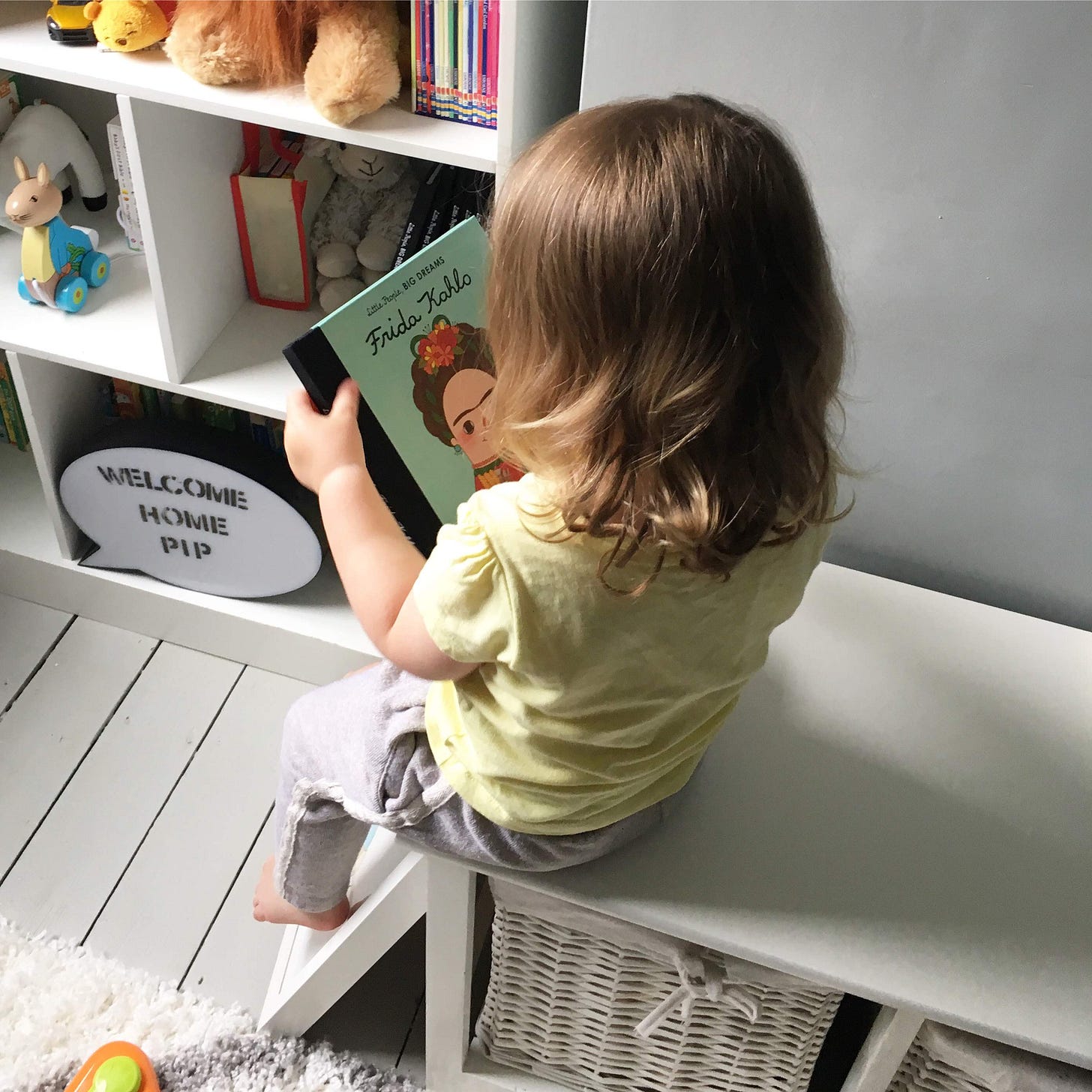What is the best age to learn to read?
It’s World Book Day in the UK today (hurrah). Hurrah because I love books - but probably despair for many parents last night scrambling to put together a costume - and when I say parents, this is usually the mother (but I would *love* to hear from any dads who are on costume duty - the planning and buying/making I mean). It’s also the first World Book Day as a parent with a child now in school, and I’ve been thinking about reading, literacy and language a whole lot this past month.
It all started when S came home back in October and started sounding out words, very slowly. Then writing down ‘cat’ and ‘dog’ - simple three letter words and she delighted at being given another one to write out. “Give me a hard one,” she’d ask. I was surprised and a little proud, having not attempted to teach her anything formally. I was only taught to read aged 7 - and so are Finnish students, who are known for achieving top results in literacy later on… I’ve therefore never worried about pushing her to learn any formal academic skill - the research is clear that engaging them in conversations and reading to them arms them with the language skills they need to learn literacy later on. As I write in a new feature for BBC Future:
Many studies show little benefit from an early overly-academic environment. One 2015 US report says that society's expectations of what children should achieve in kindergarten has changed, which is leading to "inappropriate classroom practices", such as reducing play-based learning.
Her journey is the absolute norm here in the UK. Most of the kids in her group are mastering these skills (of course there is natural variation in ability - which is why World Book Day, and celebrating reading is so important). But what is less clear is the benefits of learning to read so early. I’m not suggesting a sample size of me vs her is anything to go by, so I dug into the literature of early learning and reading, to understand if there is a best age to learn, and if so, why. A little snippet from it below.
was seven years old when I started to learn to read, as is typical of the alternative Steiner school I attended. My own daughter attends a standard English school, and started at four, as is typical in most British schools.
Watching her memorise letters and sound out words, at an age when my idea of education was climbing trees and jumping through puddles, has made me wonder how our different experiences shape us. Is she getting a crucial head-start that will give her lifelong benefits? Or is she exposed to undue amounts of potential stress and pressure, at a time when she should be enjoying her freedom? Or am I simply worrying too much, and it doesn't matter at what age we start reading and writing?
A child's early experience of language is considered fundamental to their later success
There's no doubt that language in all its richness – written, spoken, sung or read aloud – plays a crucial role in our early development. Babies already respond better to the language they were exposed to in the womb. Parents are encouraged to read to their children before they are even born, and when they are babies. Evidence shows that how much or how little we are talked to as children can have lasting effects on future educational achievement. Books are a particularly important aspect of that rich linguistic exposure, since written language often includes a wider and more nuanced and detailed vocabulary than everyday spoken language. This can in turn help children increase their range and depth of expression.
For more, check out the full article on BBC Future.
My book The Motherhood Complex is out now.
It’s available on Hive, Waterstones, Foyles or Amazon and all other stores. It’s also on e-book and audiobook. Read it? I would love to know what you think, or even better, leave me an Amazon review (you can do this regardless of where it was bought)- this really helps first time authors like me. Not in the UK? Free shipping abroad here.
Questions or comments? You can reply to this post or I’m on Twitter, Facebook and Instagram.


